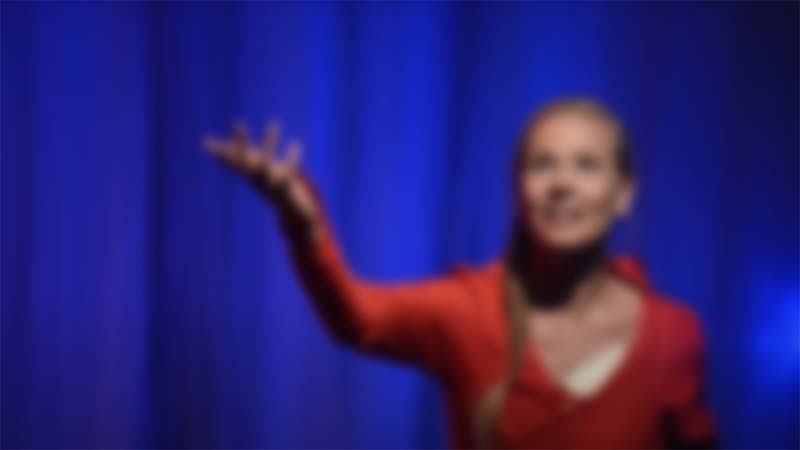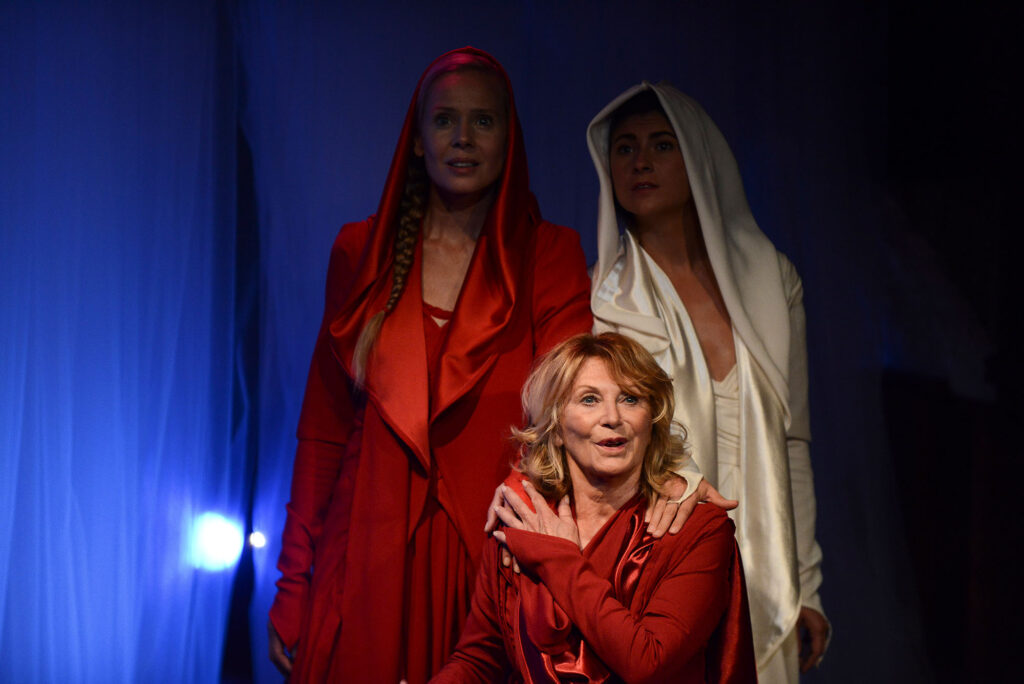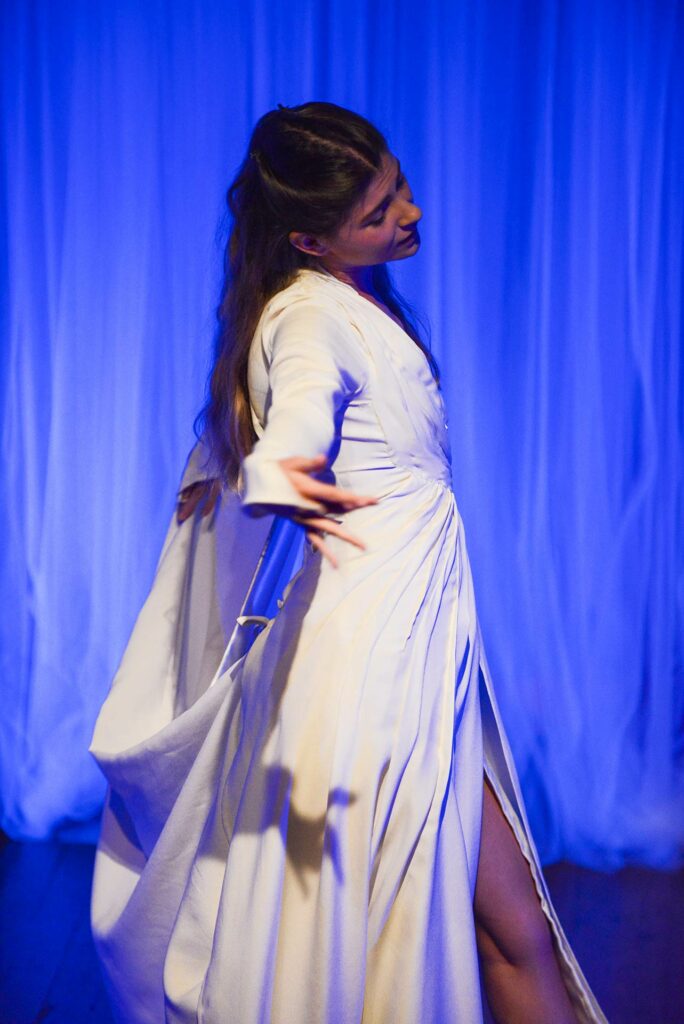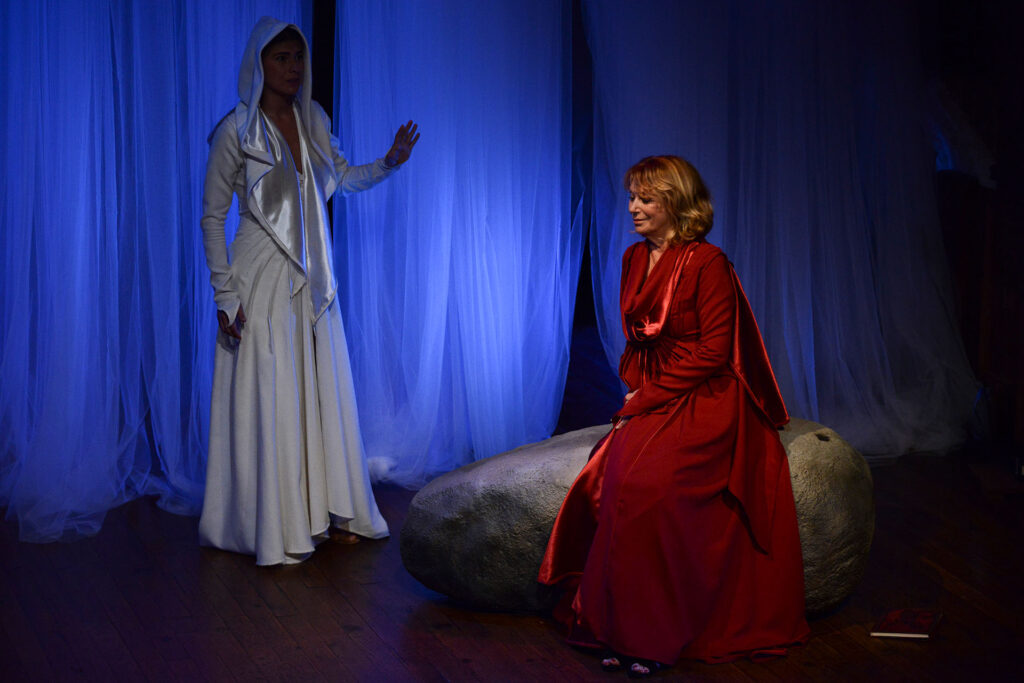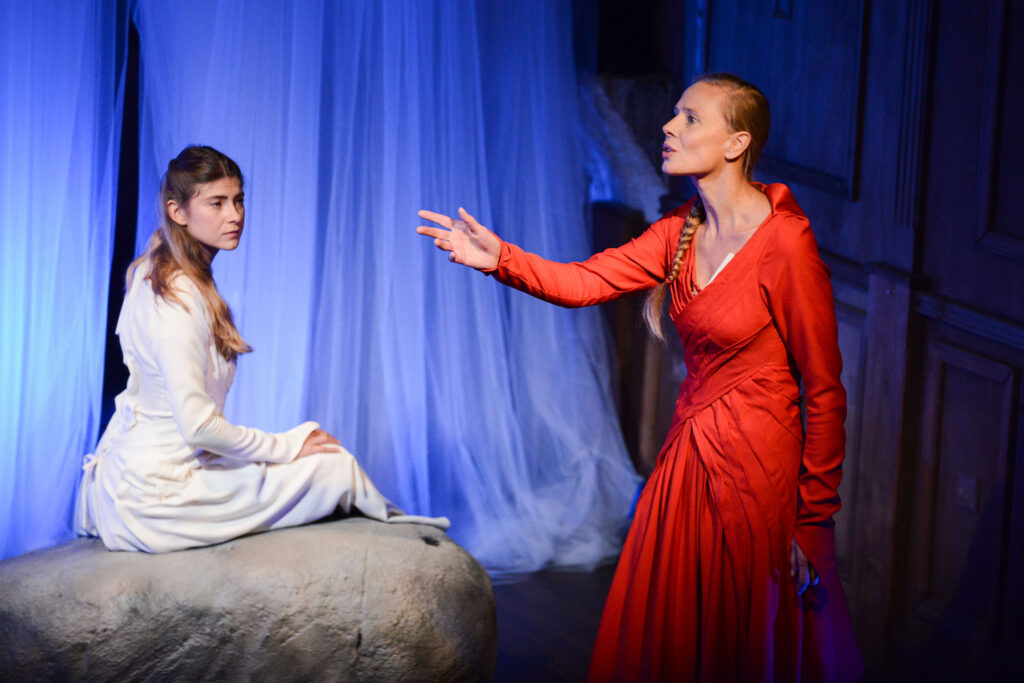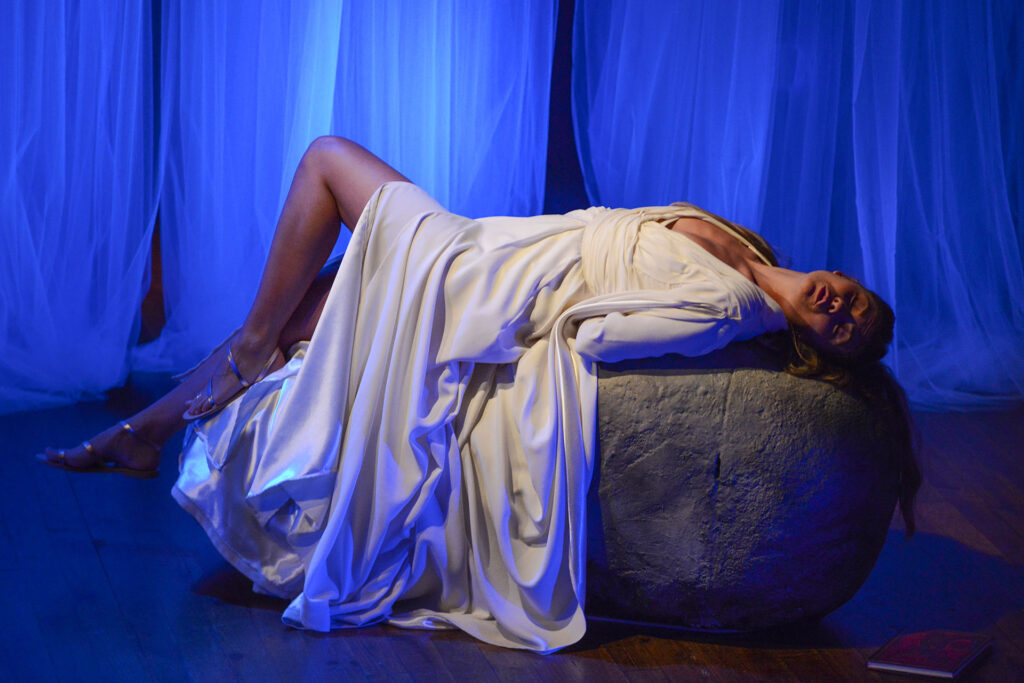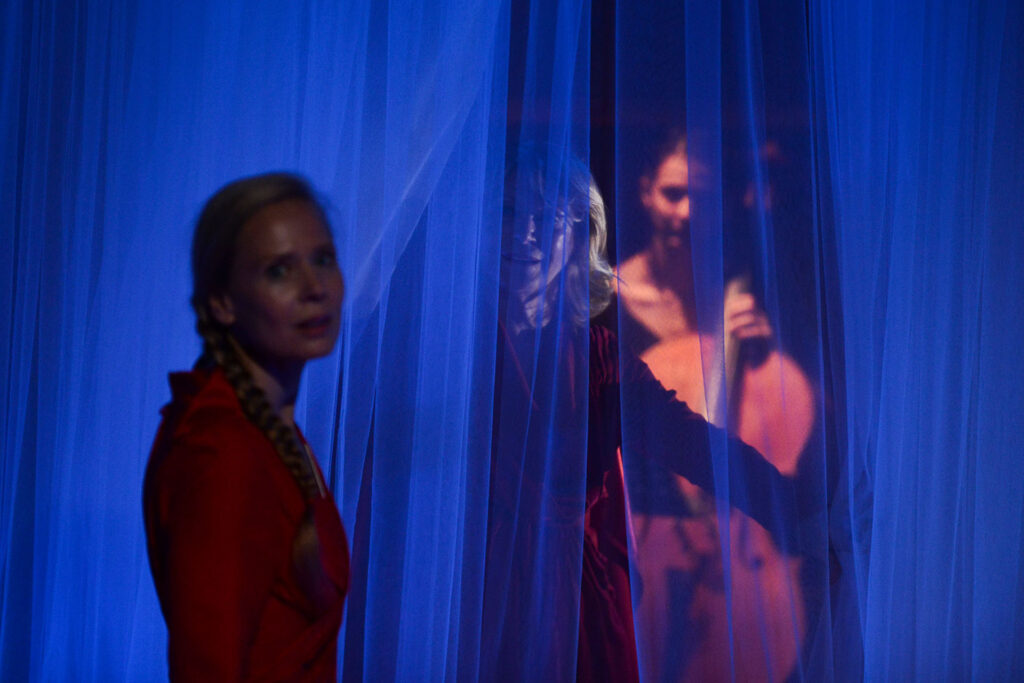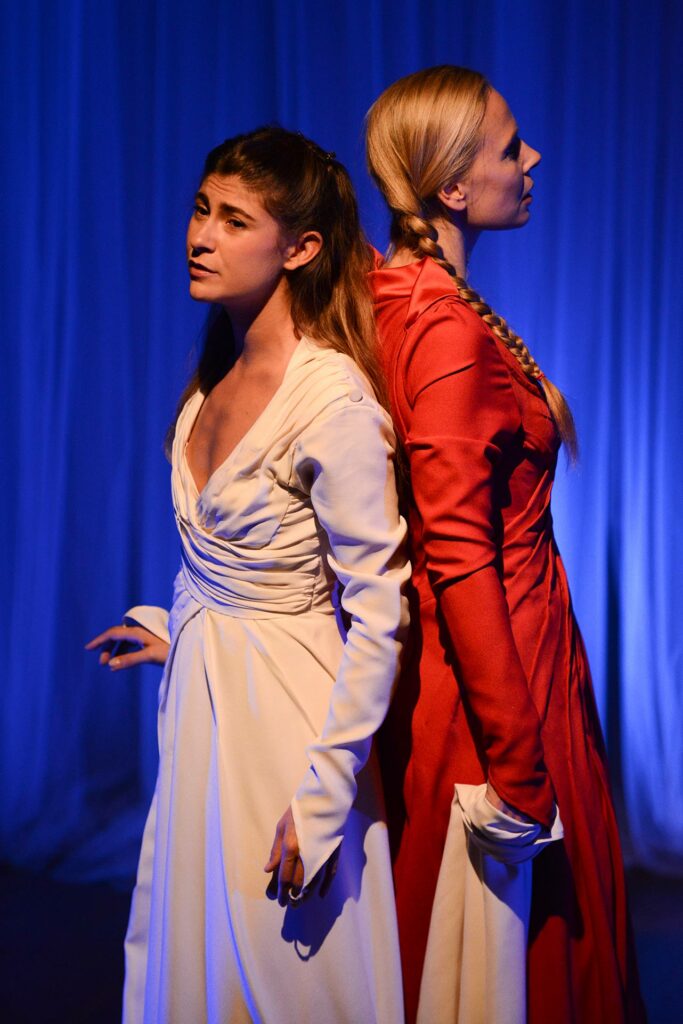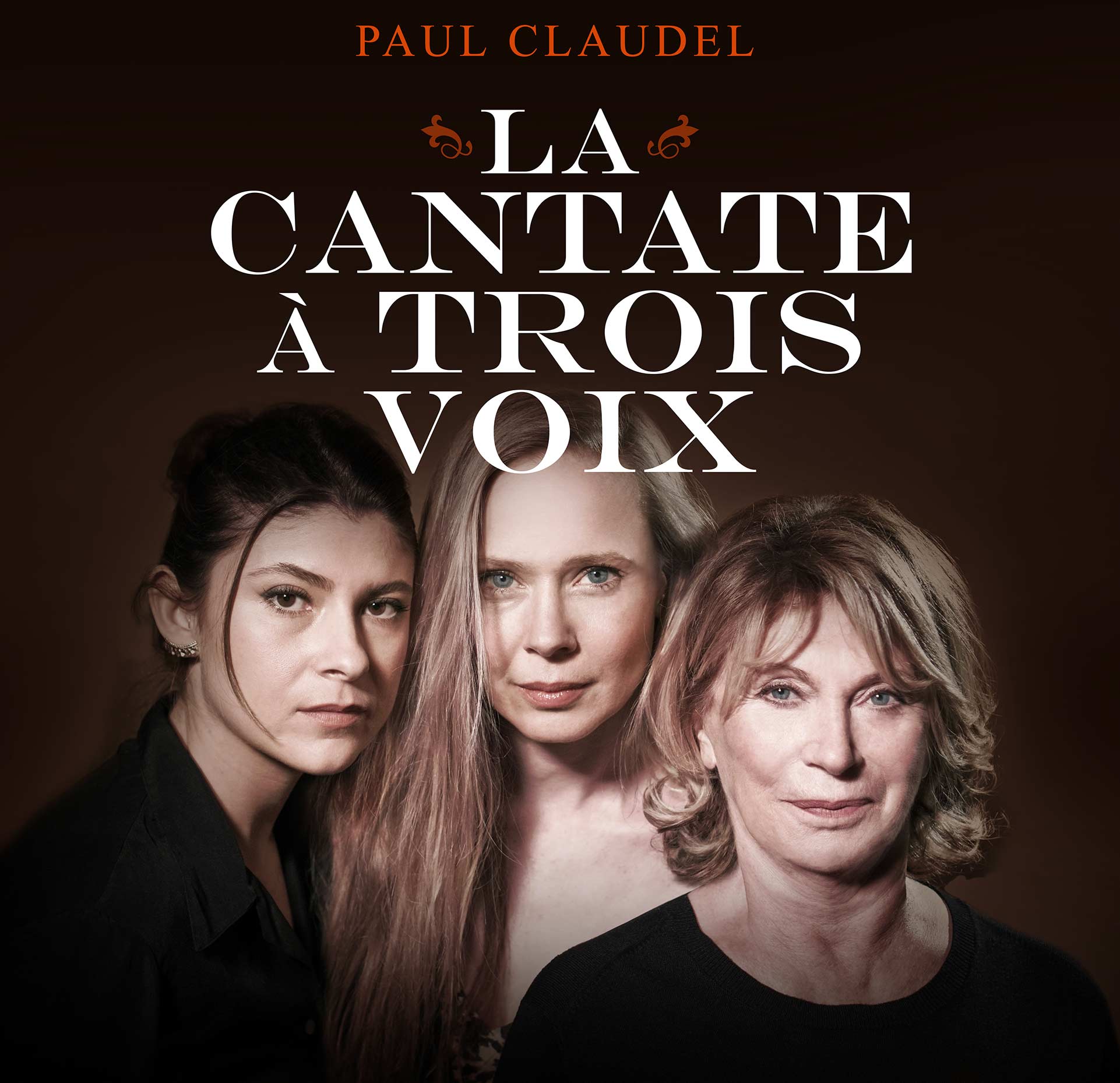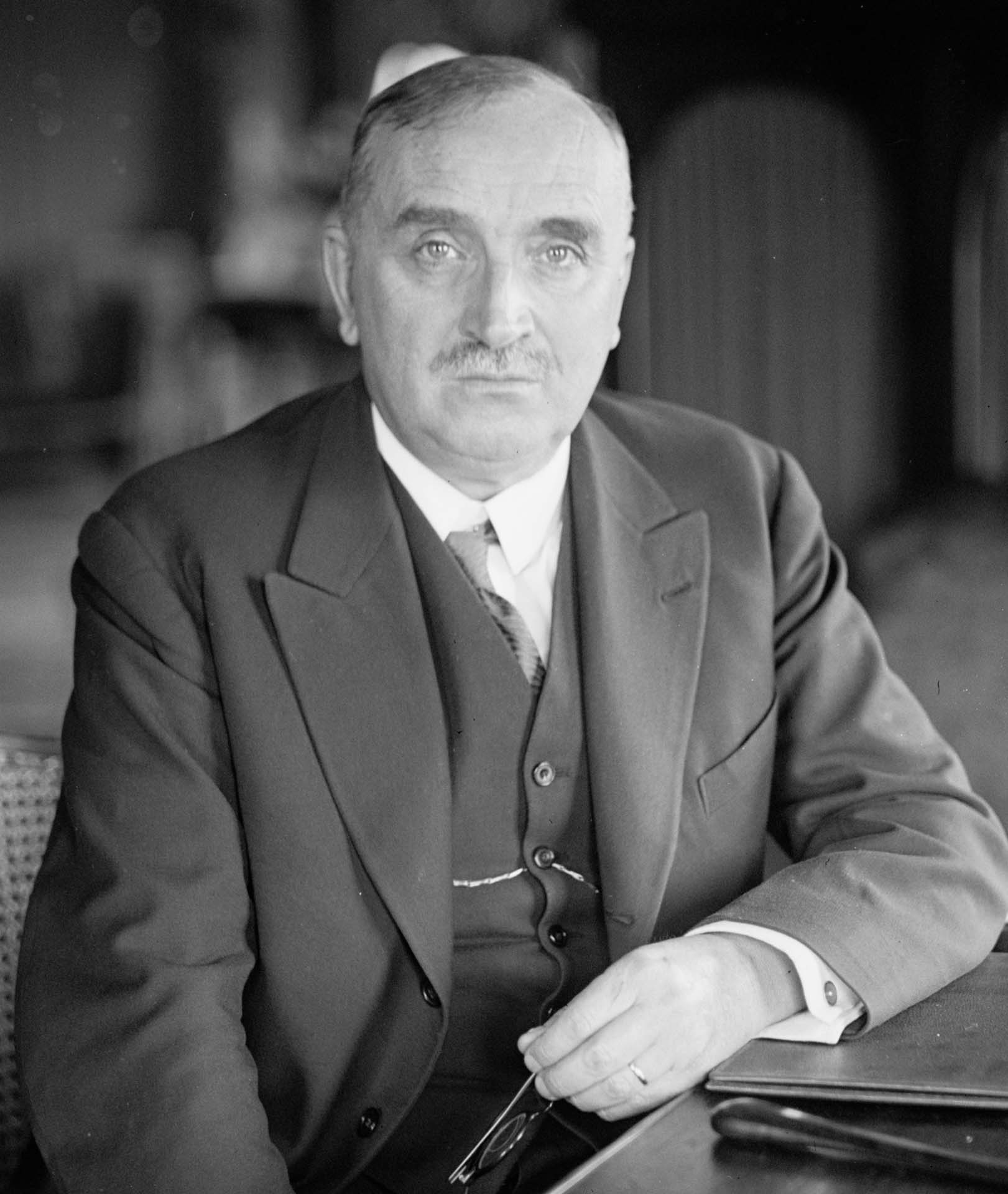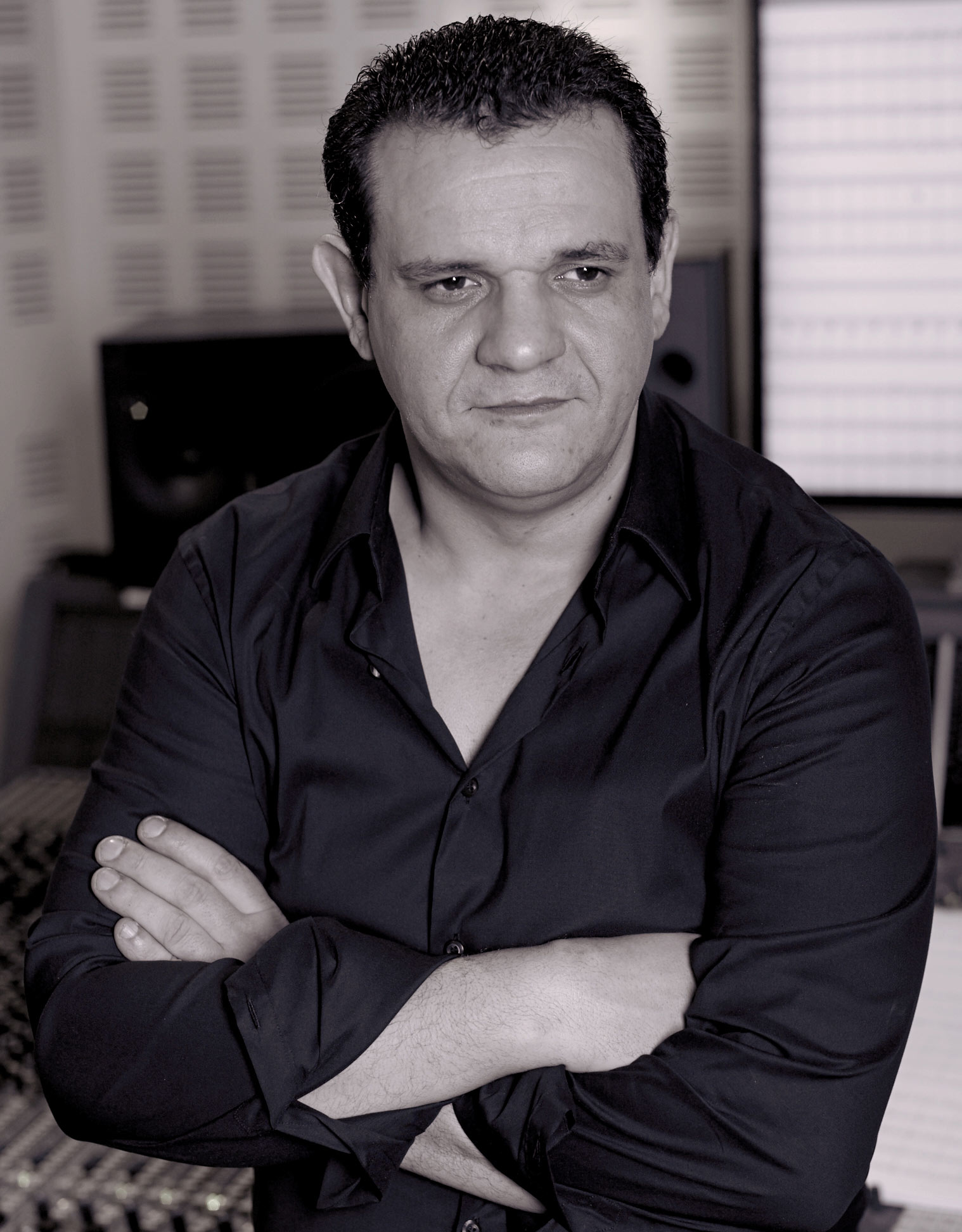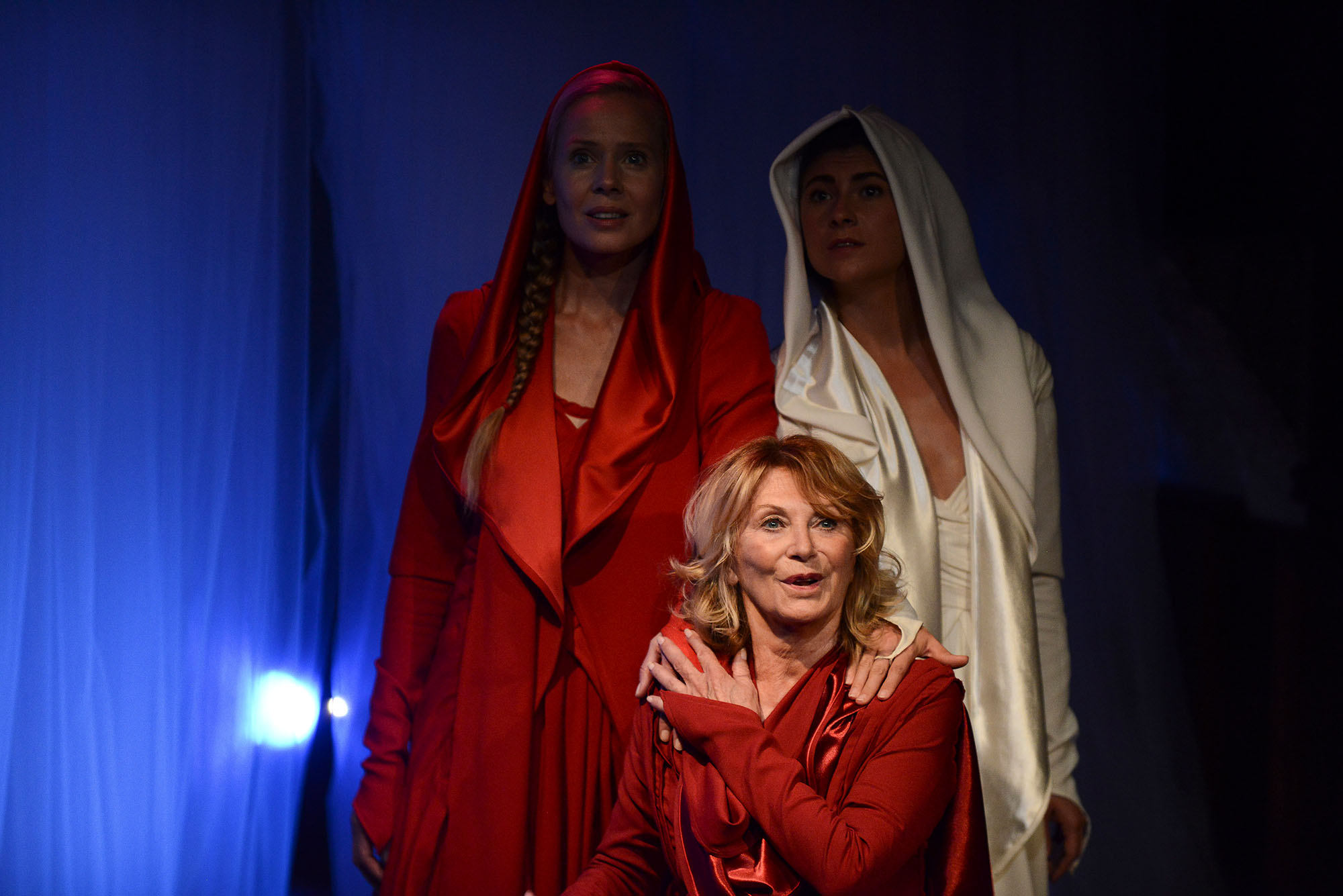“Three young women, on the night of the summer solstice, on the terrace of a castle in the Alps, among forests, vineyards and harvests: Laeta, Fausta, Beata; one Latin, one Polish, another Egyptian; one engaged, one estranged from her husband, the third a widow (…) dream, gaze, converse and sing.”
Thus, Claudel presents this long dramatic poem, written in 1911, unique among his work and in all French literature for its melodic perfection, the depth of its themes and the grace of its meditation.
Tarik Benouarka, composer and playwright, wished for the 150th anniversary of the author’s birth to bring to light this true masterpiece of French repertoire–little known and very little played–in order to share with a wider audience the beauty of his language and the current significance of its themes.
He presents an adaptation that anchors these eternal subjects of woman and desire in a new modernity, and marries the poetry of Claudel’s words with a sensitive and inspired musical score. Because dramatic, lyrical and mystical, the Cantate is also a musical work.
The seventy-five minute theatre musical piece brings together, in an original, uncluttered set design, three talented actresses: Daniele Meyrieux, Pauline Moingeon-Valles and Mélodie Le Blay, along with a young cellist, Eléonore Siala Bernhardt, whose instrument envelopes itself around the words and music.
The work was created at the Théâtre de l’Epée de Bois-Cartoucherie, Paris, in October 2018.




